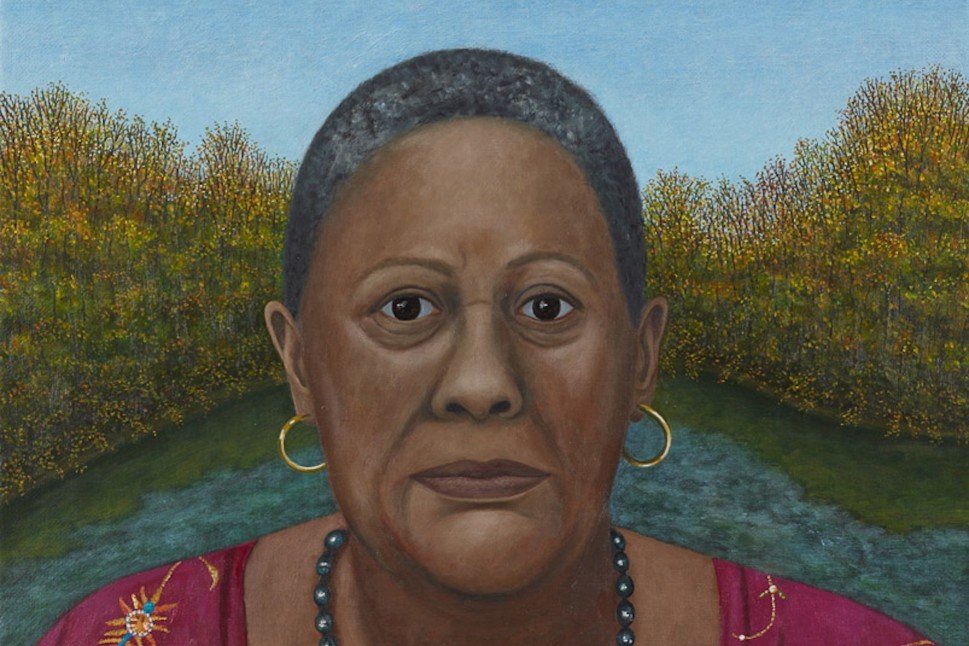The Cotillion
Angelina Morris, ca. 1844
Mama made my gown of Swiss muslin gauze
over satin, with matching satin trim,
tiny pleats at the waist, a rouleau hem,
and modest front and back décolletés.
Long kidskin gloves. A shawl of Belgian lace.
In my embroidered bag, a Spanish fan.
My hot-combed hair at my nape in a bun,
curling-iron curls on each side of my face.
Fred hired a liveried carriage for the night.
He wore a tailcoat, brought me a corsage.
(We earn good money now, so we can splurge,
this once, pretending we’re rich socialites.)
In petticoats, ribbons, and ostrich plumes,
with watch chains, snuff boxes, and monocles,
we were enchanted individuals
last night, cinderellas without our brooms.
The ballroom looked elegant, and the band
played waltzes and quadrilles. Colored New York
danced in its finery, forgetting work,
insult, and slavery still in our land.
Tub-Men
Pleasant Smith, ca. 1836
Joseph, Alonzo, Neptune, Truss, and me
lit out under a sky paling towards dawn
yesterday, to trek on down into town
and take our places in the national economy.
Because times are tough all over, poverty
and unemployment rife. Who can compete
with immigrants who’ll work for a bite to eat?
We’re free now: ain’t giving up our dignity.
It’s not like we’ve done day-labor all our lives:
Joseph was a waiter, Neptune sawed firewood,
Truss had him a little shop, when times were good.
It’s a struggle, now, to feed our children and wives.
But there’s always been work for men who will haul and lift,
doing the labor once reserved for slaves.
(It’s ironic, that those who sweat and harvest have
–after the rich are served – so little left.)
By mid-morning the corner crowd had thinned,
as men were picked. At noon, the only job
still open was emptying latrine tubs.
Am I a tub-man? I looked at my friends.
We thought the same thought. Our eyes wouldn’t meet.
Have I fell so low?
We trekked back to town last night.
Each took a barking alley by starlight.
And we emptied the perfumed privies of the elite.
Marilyn Nelson is the author or translator of more than 20 books and chapbooks for readers of different ages. Her critically acclaimed books for young adults include A Wreath for Emmett Till and the ground breaking Carver: A Life in Poems, a Newbery Honor Book. Of Marilyn’s nine poetry collections for adults, The Homeplace won the 1992 Annisfield-Wolf Award; and The Fields of Praise: New and Selected Poems received the 1998 Poets’ Prize, the PEN Winship Award, and the Lenore Marshall Prize. Three of her books have been finalists for the National Book Award, and her many honors include the Frost Medal (given by the Poetry Society of America for “distinguished lifetime achievement in poetry”), the Stevens Award (from the Academy of American Poetry for lifetime achievement"), the Ruth Lily Prize (given by the Poetry Foundation to honor a living US poet whose lifetime accomplishments warrant extraordinary recognition), the NCTE Award (for excellence in poetry for children), and the NSK Neustadt Prize For Children's Literature, and fellowships from the J.S. Guggenheim Foundation, Fulbright Foundation, and the National Endowment for the Arts. A professor emerita of English at the University of Connecticut, she has served as a Chancellor of the Academy of American Poets, and as the Poet-in-Residence of the Cathedral of St. John the Divine. She was Poet Laureate of Connecticut, 2001– 2006.
Portrait by Scott Kahn

